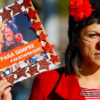Solving problems and resolving situations by properly managing the circumstances of life to get the best out of them depends on the mental resilience
Solving problems and resolving situations by properly managing the circumstances of life to get the best out of them depends on the mental resilience
Read more content like this at: thewomanpost.com
Each human being can develop it by different methods. A clear and strong mind allows a human being to develop its resilience and survive in a world of permanent challenges and competition. The Stoic method among others provides the tools to achieve a strong, clear, and resilient mind.
Facing difficulties from childhood and learning to solve them encourages children to develop their resilience. There is a physical cost associated with the event as well as an emotional cost, which can be learned to manage. Reducing the emotional costs is possible through the stoic test strategy that allows mental strength and endurance to develop.
Strategies to strengthen the mind and resilience.
The Stoic philosophy that seeks tranquility and serenity of spirit can allow us to develop mental strength and resilience through the following dynamics:
1. The Stoic test. It allows the person to react appropriately to situations. Strength is an acquired skill. It's about changing the way you think about situations. It is a test of character, endurance, and ingenuity. Only when you face situations do you know your ability to solve them, know what you are capable of and what you can do with them. To develop your character, endurance, and ingenuity, you can choose to venture into challenging situations that become "stoic adventures", thus increasing your self-confidence and preparing you to face different challenges in life. Venturing to go camping, attending events with survival tests, doing activities that you normally do not do, going on a trip to unknown places and facing it alone, etc., will allow you to perform a stoic test.
2. Get out of your comfort zone. Carrying out a deliberate expansion of the comfort zone allows strengthening and resistance training, to develop resistance to frustration because in the face of unexpected changes we can adapt to new situations. Resistance training differs from stoic adventures in that we deliberately make our tests stronger and push ourselves to the limit to see how strong we are, without this leading to masochism.
We also see the knowledge and wisdom of Stoicism applied in cognitive-behavioral psychotherapy, to put reason above emotions and manage different situations, understanding that there are destructive emotions resulting from a point of view towards the world. , which can be modified and transformed into learning
How to deal with emotions to become more resilient?
According to one of the best-known Stoic philosophers, this knowledge gives us the ability to arm ourselves against misfortune. Stoicism classifies emotions (passions) into three categories: bad emotions, good emotions, and indifferent emotions and concentrates on managing bad emotions, learning to deal with them, and understanding that we can learn to change our opinion about them. . In other words, if something bad happened to us, we can change the way we see it, to extract from it what it brought us and the learning achieved. In this way, we manage to strengthen our resilience. Thus, a strong mind that manages to manage its emotions develops a resilient spirit.
Daily practices to achieve your mental strength and resilience and rediscover your inner harmony and peace:
1. Do not allow others to influence your emotions, you decide what and how to think in each situation.
2. Do not be afraid to take risks, you can win more than losing. Leaving your comfort zone leads you to new learning.
3. Learn to be patient when you start a change, do not expect immediate results, everything takes time to mature.
4. Let go of what you cannot control, do not waste your energy and time on it. Everything is as it should be. The only thing that is under our control are our judgments, opinions, and decisions, carry out self-observation exercises.
In conclusion "Men are not disturbed by things, but by their opinions about them." Epictetus… and from my experience, I can tell you that today I am what I decided to do with everything that has happened to me… YOU DECIDE WHAT TO DO WITH YOUR LIFE!!!

























Leave a Comment
Your email address will not be published. Required fields are marked with *